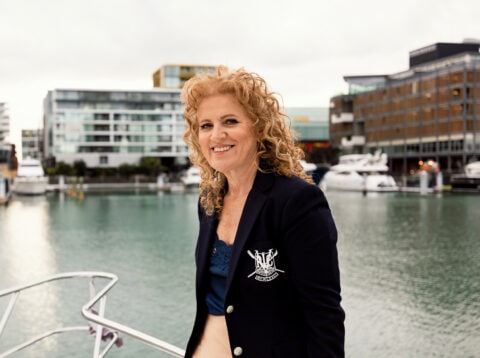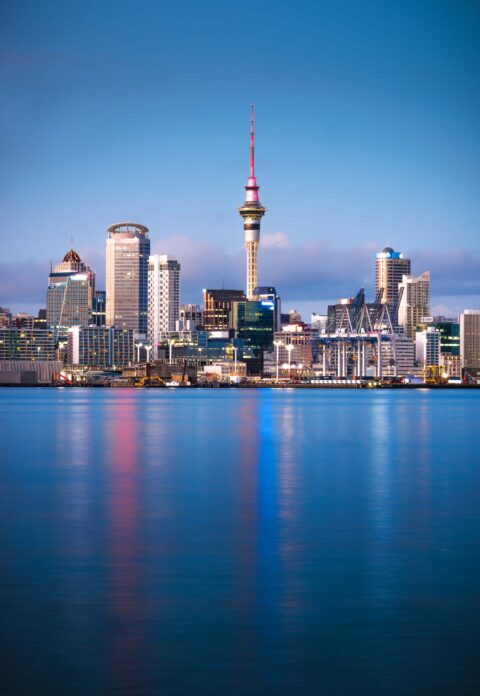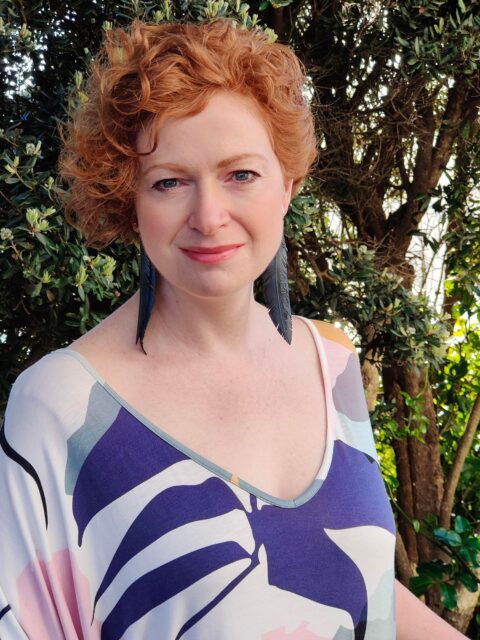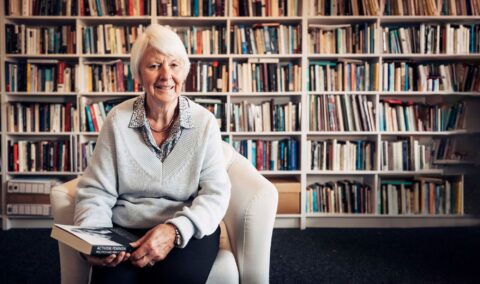To have a more meaningful impact on the climate crisis, Jessica Brown makes the case for us all to be making some waves.
I’m not usually one to buy into a catchphrase, but with the year we’ve had, I’ve found the saying “Think global, act local” slipping out across the dinner table.
More in acknowledgement than as a call to action; pride in our team of five million fighting the pandemic and potential economic collapse. We’re buying local and battling Covid at the borders. Thinking globally and acting locally is working for us.
The phrase has been a stalwart of the environmental movement since the 1970s – coincidentally, around the same time the scientific community reached a consensus on our planet heating up. We’ve peddled it out as a rallying cry for everything from building urban farms to opening a Starbucks within China’s Forbidden City. And it’s been wildly successful.
All of this got me wondering: if thinking globally and acting locally has managed to build a sense of common purpose and motivate action for so many causes, what has it done for the climate crisis? Why are we, 50 years of climate science later, still emitting more greenhouse gas than ever?
Thinking globally is, unfortunately, part of the problem. It turns the climate crisis into something remote, both in time and in space. It’s ice caps melting in distant lands for future generations. It can make us feel unengaged, powerless and uncaring.
Yet thinking about the effects of climate change at a community level could help. According to the Yale Program on Climate Change Communication, we need reminders that climate change is happening here and now, harming people and ecosystems. We need to share stories of how it’s affected someone’s food, farm or fashion. Yes, we need to think globally, but thinking locally makes things more real, tangible and manageable.
What about the acting locally part of the equation? We are told we’re to blame for heating the planet and, in the same breath, we’re told we can fix it. All it takes is the perfect sustainable life, complete with a verdant vege garden and plastic-free pantry. Somehow the onus for solving the world’s ills fits squarely on our individual shoulders.
But to err is to be human. If the answer is for everyone to do all the right things all the time, we’re in trouble. I can’t keep a New Year’s resolution past the end of January – can we really rely on everyone else to? At best, sweating the small stuff is a distraction. At worst, it turns people off the mahi we all need to be doing.
According to scientists such as Dr Katharine Wilkinson from Project Drawdown, we need to be thinking much bigger than ourselves. We’re each only responsible for a drop in the ocean of emissions, and fixating on our one droplet arbitrarily limits the impact we can have. In Dr Ayana Elizabeth Johnson’s words, doing so is nothing more than “ineffective navel-gazing”, leaving us with less energy, time and headspace to do the things that matter. Instead of squandering our efforts, we should be trying to turn our droplet into a tsunami. We should be asking ourselves, “How can I make waves much larger than myself?”
The size of my splash has been on my mind as New Zealand slinks away from another hotter than average summer. I’m a child of the ’90s, where school holidays were spent watching Captain Planet and the Planeteers “take pollution down to zero”. With their powers combined, they could take on even the nastiest eco-villain. It was a lesson in collaboration for the global good that stuck with me throughout my schooling and into a job at a climate-change consultancy in Copenhagen.
I blame cartoons for my naivety, but I honestly thought that collective willpower was all we needed to quash an existential threat. As it turns out, bottom lines and greenwashing held more sway. Dejected, I left the industry and settled into a cushy corporate job, hoping another Planeteer would pick up my slack.
The Australian bush fires of 2019 had other plans. Living in Sydney at the time felt apocalyptic. The scale of the devastation to people, animals and the environment was agonising; its impact so visceral. Swathes of people were standing up for the climate under blood-red skies. Greta Thunberg was trolling Trump on Twitter. It moved me.
I wanted to do my bit, but navigating the advice on living a more climate-friendly lifestyle proved to be conflicting, confusing and full of virtue signalling. I bought the whole “green influencer” starter pack of things. I calculated my emissions and prioritised climate action that would make a larger dent in my carbon footprint. But despite the glass straws and the vegan cheese, my carbon savings were trivial.
I was navel deep, ignoring the fact that my lifestyle tweaks weren’t having the scale of impact I thought they were. By blindly zeroing in on my carbon footprint, I had lost all sense of the bigger picture. The climate crisis isn’t just about one person – it’s about everyone. The only way to have a genuinely outsized emissions saving is to help others reduce emissions too.
The climate crisis isn’t just about one person – it’s about everyone
Shifting the focus of our actions from ourselves to others means rethinking what we’ve traditionally included on those “How to save the planet” lists of hacks. Effective climate action isn’t just riding a bike; it’s telling your colleagues why you’re doing it and how it makes you feel. It’s rallying and voting. It’s sharing a compost bin with your block. It’s funding low-carbon projects that reduce and avoid emissions from entering the atmosphere, like tree-planting schemes and micro wind farm projects. It’s looking a few ripples out from yourself to influence wider change.
For me, that meant setting up Co-Benefits, a non-profit organisation based in New Zealand which helps Kiwis have a more meaningful global impact. We crowdfund for low-carbon projects that help vulnerable communities around the world build resilience, and remove tonnes of emissions from the atmosphere. And, collectively, we’re making waves. For the price of a coffee a week, joining us means saving more than three times the emissions of swapping to an electric car for a year, for around 0.5% of the cost.
We’re proving that you don’t have to upend your life to have an outsized positive impact; helping others reduce their emissions – while you work on reducing your own – can make a massive difference.
Fires, tweet battles and a newly launched non-profit later, it turns out life is a little more nuanced than any old adage that slips off the tongue. “Think global, act local” may not be the motto we need to tackle the climate crisis, but as our pandemic mantra, it’s been invaluably instructive. We’re trusting in science, we’re drastically changing our lives, and we’re thinking about the wider impact of our personal actions (by stifling sneezes in the supermarket). We’re collaborating for the global good as we’ve never done before.
If we can carry these lockdown lessons headfirst into the climate crisis, I see no reason why we won’t be splashing down on the shores of a much sunnier low-carbon future.
Jessica Brown is the co-founder of Co-Benefits, a non-profit climate change collective on a mission to make it easy for Kiwis to protect the planet.








